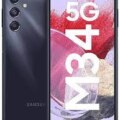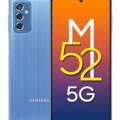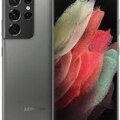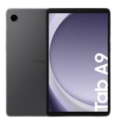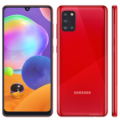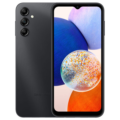- Home
- All Products
- Mobiles
- Apple iPhone 5 Price & Specs
Apple iPhone 5 Price & Specs


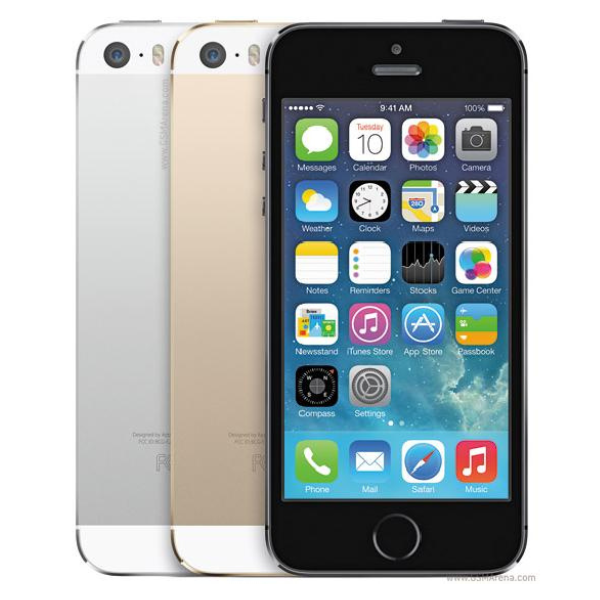
-
Processor: 1.3 GHz dual-core processor
-
RAM: 1GB
-
Storage: 16GB, 32GB, 64GB
-
Display: Display 4 inch
-
Camera: 8MP
-
Battery: iOS 6, upgradable to iOS 10.3.3
Specs
General
| Device Type | Smart Phone |
| Model | Apple iPhone 5 |
| Released | 21 September, 2012 |
| Status | Discontinued |
Network
| 2G Network | 2G bands GSM 850 / 900 / 1800 / 1900 - GSM A1428 CDMA 800 / 1900 / 2100 - CDMA A1429 |
| 3G Network | HSDPA 850 / 900 / 1700 / 1900 / 2100 - GSM A1428 CDMA2000 1xEV-DO - CDMA A1429 |
| 4G Network | 4, 17 - GSM A1428 LTE 700 / 850 / 1800 / 1900 / 2100 - CDMA A1429 LTE 850 / 1800 / 2100 - GSM A1429 |
| SIM <strong>SIM</strong> (Subscriber Identity Module) is a small card that contains mobile network subscriber's account information. This allows the phone using the card to attach to a mobile network. The SIM card is most commonly associated with GSM and UMTS mobile networks. Moving a SIM card from one phone to another allows a subscriber to switch mobile phones without having to contact their mobile network carrier. SIM cards can also be used by a phone to store limited amounts of data, such as phone numbers and text messages. | Nano SIM |
Design
| Type <strong>Design Type</strong> called form factor refers to a mobile phone's size, shape, and style as well as the layout and position of major components of phone. There are three major form factors seen in mobile phones => bar phones, folding phones and sliding phones. | Bar |
| Dimensions | 4.87 x 2.31 x 0.30 inches |
| Weight | 112 gms |
| Colors | Black/Slate, White/Silver |
Display
| Display Type <strong>Display Technology => </strong> A number of display technologies and types used in mobile phones => TFT (Thin Film Transistor), IPS (In-Place Switching), OLED (Organic Light Emitting Diode), AMOLED (Active-Matrix Organic Light-Emitting Diode), Super AMOLED (an even advanced version of AMOLED), Resistive Touchscreen (Resistive touchscreens contain two layer of conductive material with a very small gap between them which acts as a resistance), Capacitive Touchsceen (Capacitive touchscreen technology consists of a layer of glass coated with a transparent conductor) | LED-backlit IPS TFT, capacitive touchscreen, 16M colors |
| Size | 4 inches |
| Resolution | 1136 x 640 pixels |
| Display Colors <strong>Display Colors</strong> is refers to the number of different shades of colors that the screen is capable of displaying => 64K colors, 256K colors and 16 million colors, Obviously 16M is highest available range of colors and better than others. | 16M colors |
| Pixel Density <strong>Pixel Density (PPI)</strong> is refers to the concentration of pixels on a particular display, measured in pixels per inch (ppi). Pixel density is calculated by dividing the diagonal pixel resolution of a display by its diagonal size, higher pixel density better display quality. | 326 pixels per inch |
| Display Protection <strong>Display Protection => </strong> Gorilla Glass is a special alkali-aluminosilicate glass shield with exceptional damage resistance that helps protect mobile displays from scratches, drops, and bumps of everyday use, It is always better to go for a smartphone with Gorilla Glass for that added protection and peace of mind. | Corning Gorilla Glass, Oleophobic coating |
| Features | Multi-touch, Full sRGB, LED-backlit, Fingerprint-resistant |
Software
| Operating System <strong>OS => </strong> Every computer system run on a base software called Operating System (OS). Operating System controls all basic operations of the computer (such as smartphone, PDAs, tablet computers and other handheld devices). The Operating System allows the user to install and run third party applications (apps), apps are used to add new functionality to the device. | iOS 6, upgradable to iOS 10.3.3 |
| User Interface <strong>UI</strong> or user interface of a device is the look and feel of the on-screen menu system. How it works, its color scheme, how it responds to button presses, all of these things are part of the user interface. | iOS UI |
Hardware
| Chipset <strong>Chipset</strong> is a group of integrated circuits designed to perform one or a more dedicated functions, often with real time computing constraints, Popular smartphones are equipped with more advanced embedded chipsets that can do many different tasks depending on their programming. | Apple A6 (32 nm) |
| CPU <strong>CPU</strong> (Central Processing Unit) mostly known as processors, CPU processes instructions in order to carry out certain functions that make your device operate properly. Processors are often described as the brain of computers, smartphones and tablets, Smartphones and tablets rely on processors to carry out their every task, Processors are an incredibly important factor in selecting any type of computing device, including your smartphone. | ARMv7-A, Dual Core (1.3 GHz) |
| GPU <strong>GPU</strong> (Graphics Processing Unit) is a single-chip processor designed to rapidly manipulate and alter memory to accelerate the creation of images in a frame buffer intended for output to a display, This includes things such as lighting effects, object transformations, and 3D motion. | PowerVR (SGX543MP3) |
| RAM (Memory) <strong>RAM</strong> (Random Access Memory) is a type of computer memory that can be accessed randomly, any byte of memory can be accessed without touching the preceding bytes that allows information to be stored and accessed quickly from random locations. RAM is the most common type of memory found in computer systems, smartphones, tablets and other electronic devices. | 1 GB |
| Internal Storage <strong>Internal Storage</strong> is a data storage space (flash memory) mostly used in smartphones, tablets and other electronic devices where operating system, apps, music, photos, videos, files and other user data Is stored. | 16GB, 32GB, 64GB |
| Card Slot <strong>Memory Card Slot</strong> is a special slot for inserting a memory card. Memory cards allow you to expand the phone's built-in memory, A memory card (sometimes called a flash memory card or a storage card) is a small storage medium used to store data such as text, pictures, audio, and video, for use on small, portable or remote computing devices such as mobile phones, mp3 players, digital cameras. | |
| Sensors <strong>Sensors</strong> are electronic components that detects and responds to some type of input from the physical environment. The specific input could be light, heat, motion, moisture, pressure and location, The output is generally a signal that is converted to use in computing systems, a location sensor, such as a GPS receiver is able to detect current location of your electronic device. | Accelerometer, Three-axis gyro, Ambient Light Sensor, Proximity sensor and Backside Illumination |
Camera
| Primary <strong>Camera</strong> is able to capture photographs and usually videos, The most important characteristics of a camera are the resolution (measured in megapixels), lens focus type (fixed or automatic), higher megapixel cameras are known to capture higher quality photos, but not always a good measurement of the photos quality. | 8 MP (f/2.4 ) |
| Secondary | 0.3 MP (f/2.4 ) |
| Video | 1080p HD at 30 fps |
| Camera Features | Optical Zoom, Digital Zoom, Face detection, Live / Hybrid IR filters, Timelapse, Video zoom, Facetime |
| Flash <strong>Flash Light => </strong> There is commonly two types of flash lights are used in camera mobile phones, LED Flash (LED flash offers lower power consumption with drive circuitry that takes up very little room, LEDs can be strobed faster than any other light source), Xenon Flash (xenon flash produces an extremely intense full-spectrum white light for a very short duration) |
Connectivity
| Wi-fi <strong>Wi-Fi</strong> is a popular wireless networking technology using radio waves to provide high-speed network connections that allows devices to communicate without cords or cables, Wi-Fi is increasingly becoming the preferred mode of internet connectivity all over the world. | 802.11a/b/g/n |
| Bluetooth <strong>Bluetooth</strong> is a wireless communications technology for exchanging data between mobile phones, headsets, computers and other network devices over short distances without wires, Bluetooth technology was primarily designed to support simple wireless networking of personal consumer devices. | v4.0 with A2DP |
| GPS <strong>GPS</strong> The Global Positioning System is a satellite-based radio navigation system, GPS permits users to determine their position, velocity and the time 24 hours a day, in all weather, anywhere in the world, In order to locate your position, your device or GPS receiver must have a clear view of the sky. | Yes + A-GPS support |
| Wi-fi Hotspot | |
| USB | Yes |
| NFC <strong>NFC</strong> (Near field communication) is a set of standards for smartphones and similar devices to establish peer-to-peer radio communications with each other by touching them together or bringing them into proximity, usually no more than a few inches. | |
| Wireless Charging <strong>Wireless Charging</strong> (Inductive Charging) uses an electromagnetic field to transfer energy between two objects. This is usually done with a charging station. Energy is sent through an inductive coupling to an electrical device, which can then use that energy to charge batteries or run the device. |
Data
| GPRS <strong>GPRS</strong> (General Packet Radio Service) is a packet oriented mobile data service on the 2G and 3G cellular communication system's global system for mobile communications (GSM), Generally, GPRS is used for the purpose of wireless data transfer, such as sharing pictures and videos or browsing the Internet via a mobile phone connection. | |
| EDGE <strong>EDGE</strong> (Enhanced Data GSM Environment) is a wireless network technology generally considered the next step in the 2G network offers data transfer rates up to four times faster than ordinary GSM networks, Generally, EDGE is used for the purpose of wireless data transfer, such as sharing pictures and videos or browsing the Internet via a mobile phone connection. | |
| Speed | HSPA 42.2/5.76 Mbps, LTE Cat3 100/50 Mbps, EV-DO Rev.A 3.1 Mbps |
Messaging
| SMS <strong>SMS</strong> (Short Messaging Service) is a text messaging service component of phone, Web, or mobile communication systems. It uses standardized communications protocols to allow mobile phone devices to exchange short text messages over the networks. | Yes |
| MMS <strong>MMS</strong> (Multimedia Messaging Service) is a standard way to send messages that include multimedia content (audio clips, video clips and images) to and from mobile phones over wireless networks using the WAP protocol. | |
| Email <strong>Email</strong> (Electronic Mail) is a system for receiving, sending, and storing electronic messages, Similar to a letter, email is text messages that may contain files, images, or other attachments sent via the internet to a recipient by using applications and software prograps. An email address is required to receive email, and that address is unique to the user. |
Media
| Audio Playback | |
| Video Playback | |
| FM Radio | |
| Loudspeaker | |
| Ring Tones | MP3, WAV |
| Alert Types | Vibration, ringtones |
| Handsfree | 3.5mm Headphone Jack |
Battery
| Battery Type <strong>Battery Type => </strong> Cell phones run on various kinds of batteries depending on the manufacturer, phone size or shape and features. There are basically four types of cell phone batteries => Lithium Polymer, Lithium Ion, Nickel Metal Hydride and Nickel Cadmium. | Li-Poly (Lithium Polymer) |
| Capacity <strong>Battery Capacity</strong> is a measure (typically in Amp-hr) of the charge stored by the battery, and is determined by the mass of active material contained in the battery. The battery capacity represents the maximum amount of energy that can be extracted from the battery under certain conditions. | 1440 mAh |
| Placement | Fixed |
| Standby <strong>Standby Time</strong> is the total amount of time that you can leave your is fully charged, turned on and ready to send and receive calls or data transmissions before completely discharging the battery. | Up to 225 h (2G) / Up to 225 h (3G) |
| Talk Time <strong>Talk Time</strong> is the longest time that a single battery charge will last when you are constantly talking on the phone under perfect conditions, Ambient temperature and highly dependent on the cellular network environment such as the distance to the closest cell network tower. | Up to 8 h (2G) / Up to 8 h (3G) |
| Music Play | Up to 40 h |
Apple iPhone 5 was first made available in September 2012, and the iPhone 5s replaced it in September 2013. It features an A6 chip, a 4-inch Retina display, and iOS 6 software that can be upgraded to iOS 10.3.4. The phone supports LTE connectivity, has an 8-megapixel camera, and a battery life of up to 8 hours of talk time. It also has features like FaceTime video calling, Siri voice control, and Apple’s virtual assistant, among others.
Table of Contents
Iphone 5 price in Pakistan
iPhone 5 price in Pakistan was around 25,800 but now it’s discontinued. It is an older model and its price may not be readily available in the market. However, it can be purchased second-hand or refurbished at a lower cost. The exact price would depend on the condition and storage capacity of the device.
IPhone 4 price in Pakistan is probably lower, though, as it is now an older model and has been replaced by several newer iPhone models like the iPhone 5s and iPhone 7. Check websites like OLX, Daraz, or iShopping to find the most recent iPhone 5s prices in Pakistan. Remember that prices on these websites can vary, and you should always exercise caution when buying from individual sellers.
Connectivity & Networking
The iPhone 5 supports a variety of networking and connectivity features, including:
- Wi-Fi: The system has an 802.11a/b/g/n Wi-Fi connection for fast internet access.
- Bluetooth: For wireless connections with other devices, it has Bluetooth 4.0 technology.
- GPS: Accurate location services are provided by the integrated GPS and GLONASS support.
- Cellular Network: The iPhone 5 is compatible with 4G LTE networks for high-speed data transfer and is offered in GSM and CDMA versions.
- Lightning Port: It connects to other devices via the Lightning port for charging and data transfer.
- NFC (Near Field Communication): For close-quarters wireless communication with other devices, the gadget also supports NFC technology.
Design of iPhone 5
The iPhone 5 has a sleek, simple aesthetic that is characteristic of Apple products. It has a 4-inch Retina display with a pixel density of 326 and a resolution of 1136 x 640 pixels. The device’s display takes up most of the front, with a small earpiece, a front-facing camera, and the home button at the top. The main camera, LED flash, and Apple logo are located on the back of the device, which is made of anodized aluminium.
One of the smaller and lighter smartphones of its era, the gadget has dimensions of 123.8 x 58 x 7.6 mm and weighs 112 grammes. Additionally, it comes in two colour choices: black and white.
Memory of iPhone 5
There are several storage options available for the iPhone 5. These include:
- 16GB
- 32GB
- 64GB
Because there is no memory card slot, the storage capacity cannot be increased. The internal memory of the device is where apps, music, pictures, videos, and other data are kept. The model, as well as how much room the operating system and pre-installed apps take up, will determine the amount of storage that is available.
Processor of iPhone 5
Apple’s A6 chip, which was created to deliver excellent performance and efficiency, powers the iPhone 5. The dual-core processor and quad-core graphics processing unit on the A6 chip deliver sprightly and quick performance for routine tasks like web browsing, app use, and gaming. The A6 chip’s power-saving features also contribute to the device’s longer battery life.
Camera specs of iPhone 5
There are two cameras on the iPhone 5:
- 8-megapixel iSight camera on the back with autofocus, LED flash, and superior optics for taking clear images and videos. It can record 1080p HD video at 30 frames per second and has an aperture of f/2.4.
- FaceTime HD camera with a 1.2-megapixel resolution for selfies and video calls on the front camera. It can record HD video in 720p and has an aperture of /2.4.
A few additional camera features are:
- Up to 28-megapixel panoramic photos can be taken using the panorama mode.
- For concentrating on people’s faces, use face detection.
- Camera shake can be reduced with image stabilization.
- filters for photos to add artistic effects.
- Embedding geographic information into images.
In general, the iPhone 5’s camera capabilities are regarded as being quite good for the time, producing high-quality images and videos.
Performance of apple iPhone 5
Thanks to the potent A6 chip and effective operating system, the iPhone 5’s performance was regarded as being good for its time. With quick app launches and responsive navigation, the device was able to handle multiple tasks and resource-intensive apps with ease. A sharp and vibrant visual experience was also provided by the device’s 4-inch Retina display. The phone’s battery life was also good, providing up to 8 hours of talk time—impressive for the time.
However, it’s important to keep in mind that the iPhone 5’s performance can gradually deteriorate over time as a result of hardware and software limitations as well as the buildup of data and applications. The performance of the iPhone 5 may deteriorate as newer, more demanding apps are created and released.
Apple iPhone 5 different City Prices in Pakistan
| City | Price |
|---|---|
| Price in Islamabad | Rs 25,800/- |
| Price in Lahore | Rs 25,800/- |
| Price in Karachi | Rs 25,800/- |
| Price in Faisalabad | Rs 25,800/- |
| Price in Peshawar | Rs 25,800/- |
| Price in Quetta | Rs 25,800/- |
Conclusion
When it was introduced in 2012, the iPhone 5 represented a significant advancement for Apple’s line of smartphones. It had a sleek, compact design that was also functionally strong, a top-notch camera, and a variety of features that made it a favourite among buyers. The iPhone 5 is still a well-designed, functional device that can still handle many of the tasks expected of a modern smartphone, despite having been replaced by newer, more sophisticated models.
FAQ
What is the price of iPhone 5 in Pakistan?
The price of iphone 5 was 25,800 when it was launched now it’s discontinued.
Apple Iphone 5 Launch Date?
21 September 2012 is the launch date of Apple Iphone 5.
What is the price of iPhone 5 in Pakistan 2023?
25,800 PKR.
Is iPhone 5 4G?
Yes.
Can iPhone 5 get iOS 14?
No not at all, Apple says that iOS 14 can run on the iPhone 6s and later.
Disclaimer: The Apple iPhone 5 prices listed on this page are sourced from local shops and dealers and are updated daily. While we strive for accuracy, we cannot guarantee that the price information of the Apple iPhone 5 provided on this page is 100% correct, as human error is possible. We recommend that you visit your local shop for exact pricing information. Thank you for your understanding.
Reviews
-

BEST phone so for
It's an amazing phone even in 2023 i still use it it's utilized as second phone but trust me it's performance is still good.




